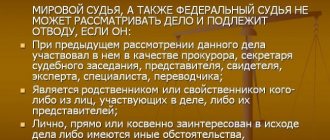Victim status
First of all, we should proceed from the fact that the legal status of the victim is a complex category, including from the point of view of its structure. The variety of criminal legal relations, and the diverse range of rights and obligations of these subjects arising in connection with this, are the basis for differentiating the legal status of victims within the framework of criminal proceedings. This makes it possible to separate, first of all, the victim from other participants in the process, as well as to highlight a number of features of his status within the specific case under investigation, which makes it possible to determine its specificity and focus.
Rules of law regulating the status of the victim
The norms that directly define and disclose the legal status of the victim of a crime are enshrined in the framework of the Criminal and Criminal Procedure legislation. To obtain the status of a victim, it is necessary to comply with such grounds as the actual infliction of harm and its legal registration as such. It should be noted that the legal status of a person as a victim is established based on his actual situation and is only procedurally formalized by a resolution, but is not formed by it. So, according to Art. 42 of the Code of Criminal Procedure of the Russian Federation, a victim is recognized as an individual who has suffered physical, moral or property damage in connection with a crime committed. A legal entity may also be considered a victim in the event that a crime has caused property damage to it or damage to its business reputation.
Analysis of the legal status of the victim
We will analyze the legal status of the victim, and also consider the inaccuracies of modern criminal procedure legislation of the Russian Federation arising in connection with the assignment of the corresponding status. The determination of the rights and obligations that the victim is entitled to is regulated directly within the framework of criminal procedural relations. Particular attention, as one of the current issues in the science of criminal procedure law, should be paid to the moment a person acquires the legal status of a victim. In criminal procedural law, as independent norms, a dual construction of the definition of the concept of “victim” is formed. Thus, the material aspect determines the victim from the moment of the occurrence of the relevant event that served as the reason for criminal prosecution as such. That is, the “victim” appears as a participant in criminal proceedings due to the very fact of causing certain harm to the person concerned. And from the point of view of directly procedural norms, the victim within the framework of a criminal procedural relationship appears as a full participant from the moment of formalization of the corresponding power-administrative decision of the authorized body or official on granting the person the corresponding status.
Fable of the case
A similar situation occurred in Omsk. There the court sentenced the man under Part 1 of Art. 318 of the Criminal Code of the Russian Federation to 1 year of imprisonment, under Part 4 of Art. 111 of the Criminal Code of the Russian Federation to 7 years 6 months in prison. In general - 8 years of imprisonment, serving the sentence in a maximum security penal colony.
The Presidium of the Omsk Regional Court changed the sentence, excluding the instruction to take into account as an aggravating circumstance for a crime qualified under Part 1 of Art. 318 of the Criminal Code of the Russian Federation, committing a crime while intoxicated due to alcohol consumption. Punishment under Part 1 of Art. 318 of the Criminal Code of the Russian Federation reduced to 9 months of imprisonment. The final sentence was 7 years and 9 months in prison.
The convicted person considered such a reduction in the term insufficient, and therefore appealed to the Supreme Court with a cassation appeal.
The man indicated that not all circumstances that are essential for the correct resolution of the case were investigated by the court, the verdict is based on conflicting testimony of witnesses, and there is no evidence that it was his actions that caused the death of the victim.
He believes that the court unreasonably did not take into account the unlawful behavior of the victim, which was the reason for the conflict. He claims that he did not intend to cause grievous bodily harm to the victim, but was in a state of necessary self-defense. He believes that the case was examined with an accusatory bias, the court did not actually evaluate the evidence of the defense, and it was also not indicated in the verdict why the court found some evidence reliable and rejected others. According to the convicted person, the court unreasonably rejected the defense's motions.
The moment a person acquires the status of a victim
Determining the moment a person acquires the status of a victim is not only important theoretical, but also practical. Particular attention is paid to the moment of granting the appropriate status to a person who has suffered from a committed illegal, socially dangerous act in the position of the Constitutional Court of the Russian Federation on this issue. Thus, according to the Determination of the Constitutional Court of the Russian Federation dated January 18, 2005 N 131 O, the moment the relevant person acquires the status of a victim in a specific criminal case proceeds primarily from his actual situation. As for the issuance of a decision by an inquirer, investigator, prosecutor or court, this is only a procedural formalization of the victim as such, but does not define or shape him. In turn, the provision, implementation and provision of a set of rights and freedoms and legitimate interests of citizens in criminal proceedings enshrined and guaranteed by the Constitution of the Russian Federation is determined not by the formal recognition of a person as an appropriate participant in legal proceedings within the framework of a specific case under investigation, but in our case as a victim, with an indication of the existing a given person's list of distinctive essential features. It is they who determine the legal status of a given person as a subject in need of protection and implementation of his legal rights and interests.
Moreover, the court decision deals with precisely those prerequisites that form the status of the victim and that the emergence of a new participant being considered in the framework of our question is directly due to material circumstances. These circumstances include the commission of a crime as such, the subject who committed it and the person whose integrity is negatively affected by the consequences of the committed act. If the specified set of signs of the corresponding status is present, the authorized bodies and their officials issue a resolution recognizing the person as a participant in criminal proceedings and thereby granting him the status of a victim.
Taking into account the fact that previous editions of the Criminal Procedure Legislation did not contain any indication of the time period during which a person who has suffered from a crime must be recognized as a victim and acquire the appropriate legal status in the criminal case under consideration. In this regard, changes on this issue were made to the current edition of the Code of Criminal Procedure of the Russian Federation. Thus, in the amendment by Federal Law No. 432-FZ of December 28, 2013 “On amendments to certain legislative acts of the Russian Federation in order to improve the rights of victims in criminal proceedings,” Art. 42 of the Code of Criminal Procedure of the Russian Federation there is an indication of the “immediateity” of making a decision to recognize a person as a “victim” from the moment the criminal case is initiated. But precisely in connection with this definition, another question arises due to the fact that there are two forms of initiating a criminal case as such. The first form involves drawing up a resolution to initiate a criminal case, issued in the presence of sufficient data that directly indicates signs of the objective side of the crime. In turn, the second form of initiating a criminal case is associated with the consideration of private prosecution cases according to the rules of Art. 318 Code of Criminal Procedure of the Russian Federation. In connection with this differentiation, the legal status of the person filing the application arises.
In the science of criminal proceedings, this issue is considered in accordance with Part 1 of Art. 42 of the Code of Criminal Procedure of the Russian Federation. In this case, based on the provisions of Part 1 of Art. 42 of the Criminal Code of the Russian Federation, a person is recognized as a victim only through the adoption of an appropriate decision by the authorized body conducting the relevant criminal case. It follows from this provision that a participant in criminal proceedings, referred to as a “victim,” can appear only after the start of proceedings in a case related to the commission of a criminal act.
Lawyer summoned for questioning due to witness's statement about pressure
On February 8, the Council of the Pskov Region Bar Association considered the appeal of lawyer Natalia Leonova to summon her for questioning as a witness in a criminal case in which she acts as a defense attorney. The reason for calling for questioning was the statement of witness D., who reported pressure on her from the lawyer.
As Natalia Leonova told AG, she is defending citizen M. in a criminal case under paragraph “a” of Part 2 of Art. 132 of the Criminal Code. After she learned that there was a witness in the case - D., she called the senior investigator of the investigation department for the city of Pskov of the Investigative Directorate of the Investigative Committee of Russia for the Pskov Region, Dmitry Andreev, and asked to interrogate the girl, which he did.
However, later, on February 1, Dmitry Andreev sent Natalia Leonova a summons to summon her for questioning on February 5 as a witness in the same case (available to “AG”). The lawyer said that on February 5 she met with Dmitry Andreev in the corridor of the investigation department. Having invited her to the office, he explained: the interrogation needed to be carried out in connection with D.’s message that the lawyer had put pressure on her and told her what exactly she should tell the investigator. Natalia Leonova replied that she would not give any testimony, citing attorney-client privilege and Art. 450 Code of Criminal Procedure. In addition, she noted that the interrogation must be agreed upon with the leadership of the chamber.
After this, Natalia Leonova sent an appeal to the Council of the Administration of the Pskov Region (available to the editors), in which she described the situation and emphasized that the information about her putting pressure on D. was not true. Natalia Leonova asked the Chamber Council to clarify whether she could give explanations as a witness in a criminal case and whether there would be a violation of lawyer’s ethics on her part.
On February 8, at a meeting, the Council of the Administration of the Pskov Region (an extract from the minutes is available from “AG”) indicated that, in accordance with clause 2, part 3, art. 56 of the Code of Criminal Procedure, a lawyer, defender of a suspect or accused is not subject to questioning as a witness about circumstances that became known to him in connection with an application to him for legal assistance or in connection with its provision, except in cases where a lawyer, defense attorney applies for questioning as a witness suspect, accused with the consent and in the interests of the suspect, accused. It is noted that this norm corresponds to clause 2 of Art. 8 of the Law on Advocacy.
It is noted that provided for in paragraph 2 of part 3 of Art. 56 of the Code of Criminal Procedure, the release of the defense attorney from the obligation to testify about circumstances that became known to him or were entrusted to him in connection with his professional activities serves to ensure the interests of the accused and is a guarantee of the defense attorney’s unhindered performance of the functions assigned to him. This is the meaning and purpose of this norm. It is noted that this understanding of lawyer immunity follows from the legal position of the Constitutional Court, formulated in the Determination of July 6, 2000 No. 128-O.
It is indicated that in relation to the persons specified in Part 1 of Art. 447 of the Code of Criminal Procedure, including lawyers, a special procedure for criminal proceedings is applied, and permission to carry out investigative actions carried out only on the basis of a court decision can be given only taking into account the provisions of Part 5 of Art. 450, art. 450.1 Code of Criminal Procedure.
In addition, the Council of the AP PO, when making its decision, took into account the information that became known to Natalia Leonova on the eve of the meeting: witness D., through her mother, contacted the lawyer and admitted that she had slandered her, being afraid of the threats of the investigator who was present at her interrogation. In this regard, D. appealed to the prosecutor's office of the Pskov region on February 7. In her complaint (available to AG), the girl indicated that in January, while giving testimony to Dmitry Andreev, investigator Imam Mamaev entered the office. After listening to her answers, he began to talk to D. in a raised voice and insult her. He threatened to send D. to a mental hospital or to a pre-trial detention center for giving false testimony, which is why she got scared and said that Natalia Ivanovna had given her instructions on how to answer during interrogation.
Thus, the Chamber Council decided that calling Natalia Leonova for questioning is illegal and contrary to the requirements of the current legislation. In addition, it was decided to inform the FPA, the prosecutor of the Pskov region Sergei Belov and the head of the Investigative Directorate of the RF Investigative Committee for the Pskov region, Pyotr Krupena, about the current situation.
In a commentary to AG, Natalia Leonova indicated that they probably wanted to interrogate her in order to remove her from participating in the case as a defense lawyer. She noted that Imam Mamaev is not an investigator in this case at all - he simply entered the office and began to insult the girl. However, according to the defense lawyer, she has just entered into the case and does not fully know all the circumstances. Natalia Leonova noted that the claims against D. arose simply because investigator Mamaev did not like what she said. She added that D. sent a complaint not only to the prosecutor’s office, but also to the investigative committee, and the complaints have already been registered.
“If we don’t defend the truth now, then this will be a precedent and they will remove unnecessary lawyers who really protect people. If we don't defend our position, there will be no need for lawyers. This is not the first time lawyers have been recused,” Natalia Leonova pointed out. She added that D. apologized to her and said that she had no way out.
President of the AP PA Alexey Gerasimov, in a commentary to AG, said that the chamber had already contacted both the prosecutor and the head of the regional Investigative Directorate of the Investigative Committee of the Russian Federation so that an investigation could be carried out against investigator Dmitry Andreev.
“I think that we should inform the FPA about every such case, especially since no such attempts have been made over the past few years. There were attempts to simply question the lawyer as a witness, but, as a rule, the investigator contacted the Bar Association, we gave explanations that the lawyer could not be questioned, and that was the end of it. And here the situation is unusual in that, firstly, the investigator himself provoked the situation, and secondly, the position of the chief of the investigator was such that we can accept anything, and the lawyer can still be interrogated,” noted Alexey Gerasimov.
He indicated that he had already had a personal meeting with the head of the Investigative Directorate of the Investigative Committee of the Russian Federation for the Pskov Region, who promised to look into this situation. “We decided that we will not dwell on this and will take all possible measures to prevent violations of the procedural rights of both the lawyer and her client, who may be left without protection if the lawyer is interrogated,” noted Alexey Gerasimov.
Victim in criminal cases of private prosecution
Speaking about the procedure for initiating a criminal case of private prosecution, you should pay special attention to the moment the so-called “victim” person submits an application to the court. That is, in fact, until the initiation of a criminal case and at the same time when filing the above application to the court, the participation of the “victim” as such is considered impossible. This is due to the fact that private prosecution cases, having their own specifics in the process of their implementation, are initiated only from the moment the magistrate makes a decision to accept the application submitted by the person for his proceedings, and therefore, the use in this case of the concept of “victim” will be a gross mistake, a shortcoming of the legislator in determining the subject composition of criminal procedural relations and their legal status.
It is possible to correct the terminological inaccuracy of the concept under consideration by using a number of other concepts and their corresponding legal statuses, such as: “a person affected by a crime”, “a person who has been harmed by a crime”. Making a corresponding change in the formation of the conceptual apparatus regarding the subject composition of criminal procedural legal relations will allow maintaining structure and logical consistency in the process of acquiring a particular legal status by a person within the framework of a criminal case under investigation. Thus, this will make it possible to more effectively protect the rights and legitimate interests of persons affected by the consequences of a criminal act, and will also have a certain significance for law enforcement officers when they carry out a set of interrelated criminal procedural actions.
Procedure for confession in a criminal case
A citizen can be recognized as a victim if a criminal case is initiated. When law enforcement officials do not have a sufficient set of information about the victim of a criminal act, the appointment of a victim in a criminal case occurs immediately after collecting the necessary information.
Assignment of status is carried out on the basis of a submitted application from the victim. You can write an application in any form, following the rules of office work. Where accuracy in filling out the document, absence of corrections, and grammatical errors is provided.
The application must be filled out with the following required elements:
- information about the organization or the name of the employee who will consider the application to issue a resolution;
- information about the applicant with contacts, residential address;
- grounds for obtaining victim status with a detailed description of the circumstances;
- evidence base indicating the facts of damage with detailed information;
- links to laws.
The initiator may be an employee who is involved in the investigation. In the event of death, the closest relative will be considered the victim.
A person or company is injured based on:
- actual fact of harm caused due to damage or misappropriation of property, offensive statements, beatings;
- evidence base where unlawful acts are associated with the damage caused.
Attention! It is necessary to confirm that the offender’s offense caused negative consequences.
The competent authorities consider the submitted application from the victim and establish his identity. The investigator, prosecutor, inquiry officer or judge draws up a resolution on the basis of which a person acquires the qualification of a victim. In the event of death, the status passes to one of the relatives. Such a transition is not possible for other close people of the deceased.






